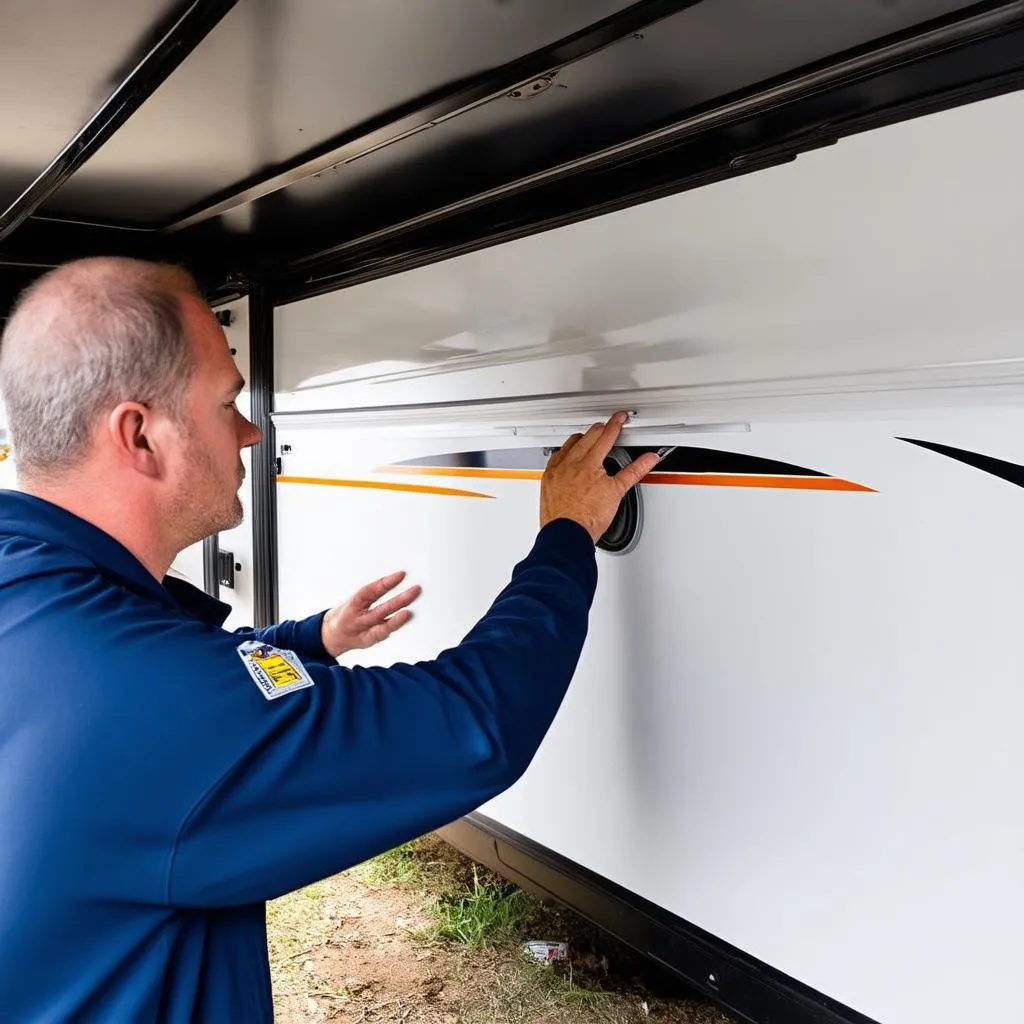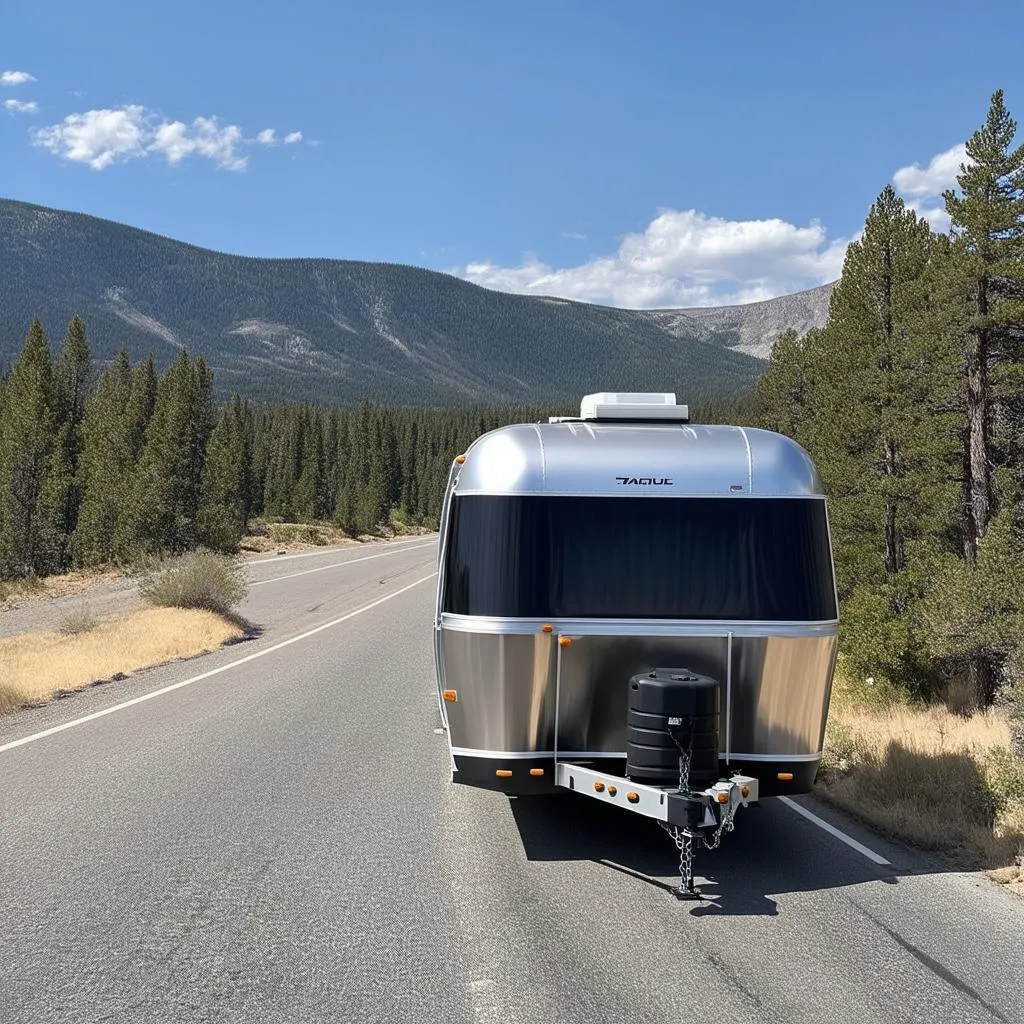Picture this: you’ve finally taken the plunge and bought your dream travel trailer. You’re all set for adventures, from the Redwood Forests of California to the vibrant streets of New Orleans. But then, disaster strikes! Your brand-new home-on-wheels starts having major mechanical issues. You’re facing repair bills, warranty headaches, and a serious case of buyer’s remorse. This is where the question of a “lemon law” for travel trailers pops up. Do you have any legal recourse?
Understanding Lemon Laws
Lemon laws are designed to protect consumers from faulty vehicles, but they typically focus on passenger cars and trucks. So, is there a specific lemon law for travel trailers?
The answer, unfortunately, isn’t a simple yes or no. Here’s why:
- State-Specific Laws: Lemon laws are state-specific, meaning each state has its own set of regulations. Some states may have laws that cover recreational vehicles (RVs) broadly, which could include travel trailers. Other states might have very specific definitions that exclude them.
- Manufacturer Warranties: Even if your state doesn’t have a specific travel trailer lemon law, your new RV will come with a manufacturer’s warranty. This warranty should cover defects in materials and workmanship for a certain period.
- Implied Warranties: Beyond the manufacturer’s warranty, most states recognize “implied warranties.” This means the product is expected to function for its intended purpose. If your trailer turns out to be a lemon, you might have grounds to pursue action under implied warranty laws.
What to Do If You Think You Have a Lemon Trailer
- Document Everything: Keep detailed records of all communication with the dealer and manufacturer, including dates, times, and names of individuals you spoke with.
- Review Your Warranty: Carefully read through your trailer’s warranty documentation to understand the coverage and your rights.
- Contact the Manufacturer: Reach out to the travel trailer manufacturer directly to report the issues. Many manufacturers have dedicated customer service lines for warranty claims.
- Seek Legal Advice: If you’re hitting roadblocks with the dealer or manufacturer, consult with a lawyer specializing in lemon laws or consumer protection. They can assess your specific situation and advise on the best course of action in your state.
Tips for Avoiding Travel Trailer Troubles
While no one wants to think about their dream RV turning into a nightmare, here are some proactive steps to take:
- Thorough Inspection: Before you buy, get a comprehensive inspection by a qualified, independent RV technician. This is crucial for used trailers, but even new ones can have hidden issues.
- Research Reviews: Read reviews from other owners of the same make and model of travel trailer you’re considering. Pay attention to any recurring problems they mention.
- Understand Your Rights: Familiarize yourself with your state’s lemon laws and the manufacturer’s warranty policies before making a purchase.
 Travel Trailer Inspection
Travel Trailer Inspection
FAQs about Lemon Laws and Travel Trailers
Q: How long do I have to file a lemon law claim on a travel trailer?
A: This varies by state. Some states have a specific timeframe (e.g., 18 months or 18,000 miles), while others base it on a “reasonable number of attempts” to repair the issue.
Q: Does a lemon law cover problems that occur after the warranty expires?
A: Typically, no. Lemon laws usually apply during the manufacturer’s warranty period.
Q: Can I get a replacement travel trailer if mine is a lemon?
A: Depending on your state’s law and the severity of the issues, you might be entitled to a replacement trailer or a full refund.
Travel On with Confidence
Buying a travel trailer should be an exciting step towards unforgettable adventures. While lemon laws for these specific vehicles can be a bit murky, understanding your rights as a consumer and taking preventative measures can save you from major headaches down the road.
For more tips on RV travel and ownership, be sure to explore the resources available on TRAVELCAR.edu.vn, your guide to all things travel-related.
 Travel Trailer on Open Road
Travel Trailer on Open Road
Remember: Laws vary from state to state, and this article is for informational purposes only and not intended as legal advice. When in doubt, always consult with a qualified professional.

